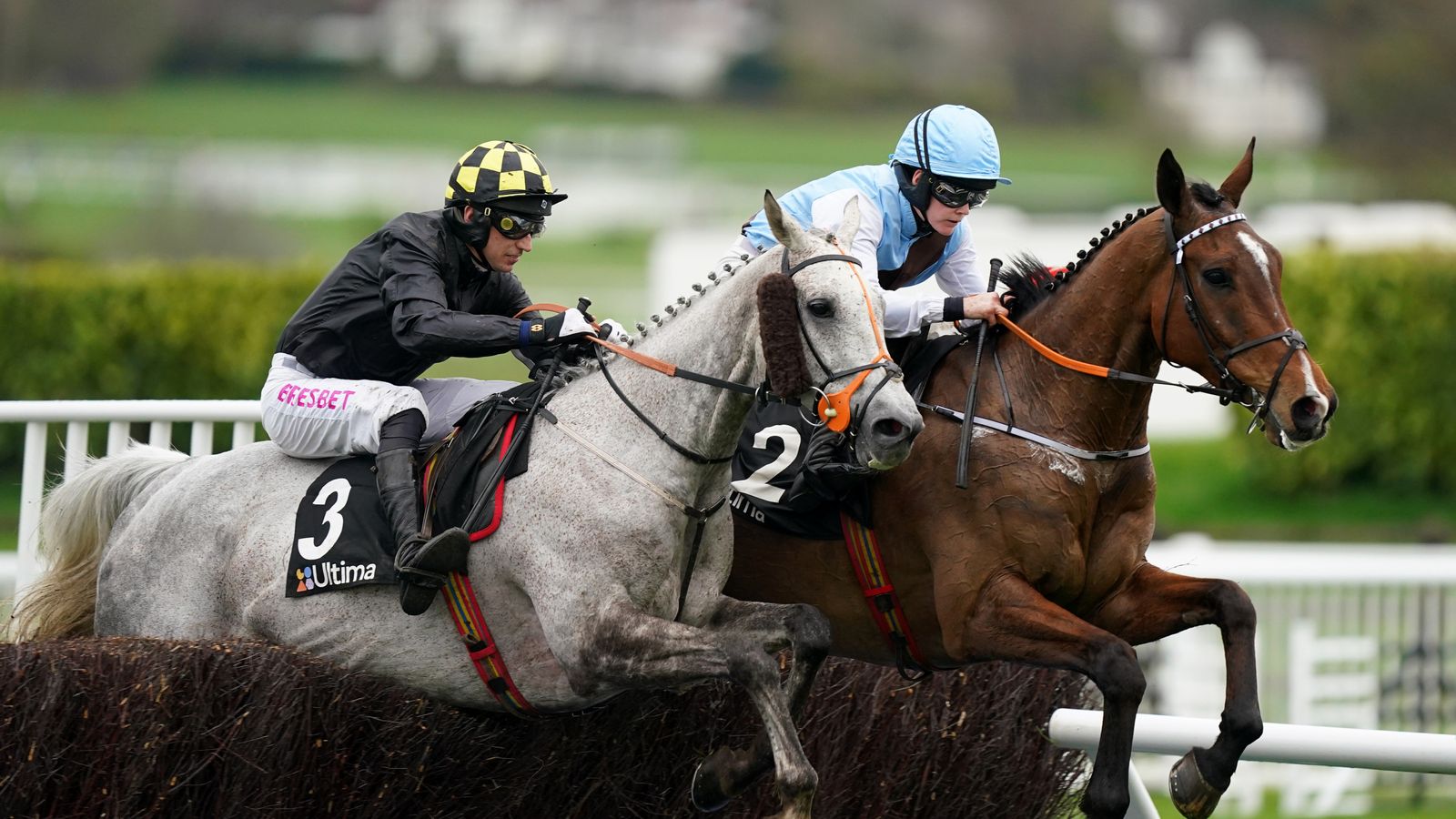Two horses have died on the first day of this year’s Cheltenham Festival.
The first fatality occurred during the third race, when 11-year-old Highland Hunter died after being injured while falling in the final stages.
Later during the Boodles Juvenile Hurdle, the sixth race of the day, four-year-old Ose Partir died.
The animal was one of two brought down by another horse, Karia Des Blaises, when he fell at the fourth hurdle.
According to Animal Aid, 76 horses have now died at Cheltenham since 2000.
A spokesperson for the racecourse said: “Highland Hunter was immediately attended by expert veterinary professionals in the concluding stages of our third race but sadly passed away.
“In the sixth race, Ose Partir sustained an injury and was humanely put to sleep. Our heartfelt condolences are with the connections of both horses.”
Fergal O’Brien, who trained Highland Hunter, said: “It’s obviously a tremendously sad day for the yard”.
He added that Highland Hunter’s death comes a month after Keagan Kirkby, who looked after the horse during his time with champion trainer Paul Nicholls, died during a race in Kent.
Hunter led Mr Kirkby’s funeral procession in Ditcheat, Somerset, last week.
“I suppose the only comfort we can take is that he is with Keagan now,” Mr O’Brien added. “It’s a very sad day.”
According to the Racing Post, James Given, the British Horseracing Authority’s (BHA) director of equine regulation, safety and welfare, said that Hunter had a cardiovascular collapse before the second-last fence.
He said such cases were “very rare” as they occur in “approximately 0.03% of runners”.
Read more from Sky News:
‘Human ashes’ discovered after funeral parlour raid
Children to no longer be prescribed puberty blockers
Police launch appeal for missing 19-year-old
Nina Copleston-Hawkens, Animal Aid campaigns officer, told Sky News: “If race horses are ‘treated like kings,’ as the racing industry would like us to believe, why has another horse lost his life?
“Cheltenham is a notorious killer of race horses and must be banned. This is not sport or entertainment, this is animal cruelty.”
The RSPCA also wrote on social media that the BHA “must thoroughly investigate the circumstances and whether anything can be done to prevent fatalities in future.”
Horseracing authorities said that the industry has a “clear and moral responsibility and deep ethic of care for the welfare of the racehorse, a responsibility we take extremely seriously”.
The BHA, The Jockey Club and Great British Racing added that while there is an “element of risk” involved in the sport, they have invested more than £47m over the last two decades to minimise the risk of harm to horses and to ensure they have a “good quality of life”.
The organisations said in a joint statement: “Horseracing today is safer than it has ever been. The number of horses returning home safely after racing is 99.8%.”



